How To Choose Your Bed Comforter: ALL 8 Types with Pros, Cons, and Costs
Choosing the right type of comforter for your bed is a decision that can significantly affect your comfort and sleep quality. The key to making an informed choice lies in understanding the various options available and how they align with your personal needs.
In this post, we’ll guide you through the process of how to choose the right type of comforter, ensuring that your selection not only enhances the look of your bedroom but also provides you with the perfect level of warmth and comfort.
We will explore eight distinct types of comforters:
- Down
- Down Alternative
- Wool
- Cotton
- Silk
- Synthetic
- Bamboo
- Microfiber
Each of these has unique characteristics, from the luxurious warmth of down to the eco-friendly comfort of bamboo. By delving into the pros and cons of each type, we aim to provide you with the necessary insights to make a choice that suits your lifestyle, budget, and personal preferences.
Whether you’re seeking a comforter that’s hypoallergenic, easy to care for, or ideal for specific weather conditions, this post is your comprehensive guide on how to choose the right type of comforter. Let’s embark on this journey to find the perfect comforter that promises to enhance your sleeping experience and complement your home’s aesthetic.
Down Comforters
Down comforters are the epitome of luxury and comfort in bedding. Filled with the soft, fluffy undercoating of ducks or geese, down comforters are known for their exceptional warmth and lightness. They typically feature a quilted design to keep the down evenly distributed.
Pros:
- Incredible Warmth: Down is renowned for its ability to trap heat, making these comforters exceptionally warm.
- Lightweight Comfort: Despite their warmth, down comforters are surprisingly light, providing comfort without feeling heavy.
- Breathability: Natural down allows for air circulation, preventing overheating and ensuring a comfortable sleep.
- Longevity: With proper care, a high-quality down comforter can last many years, making it a worthwhile investment.
Cons:
- Allergens: Some people may be allergic to down and could experience reactions.
- Price: Down comforters are often more expensive than other types, reflecting their quality and durability.
- Care Requirements: They typically require professional cleaning, which can be inconvenient and costly.
- Ethical Concerns: There are concerns about animal welfare in the sourcing of down, though ethically sourced options are available.
Typical Costs:
Down comforters can vary widely in price, often ranging from $100 to over $500. The cost depends on factors like the quality of the down, thread count of the cover, and brand reputation.
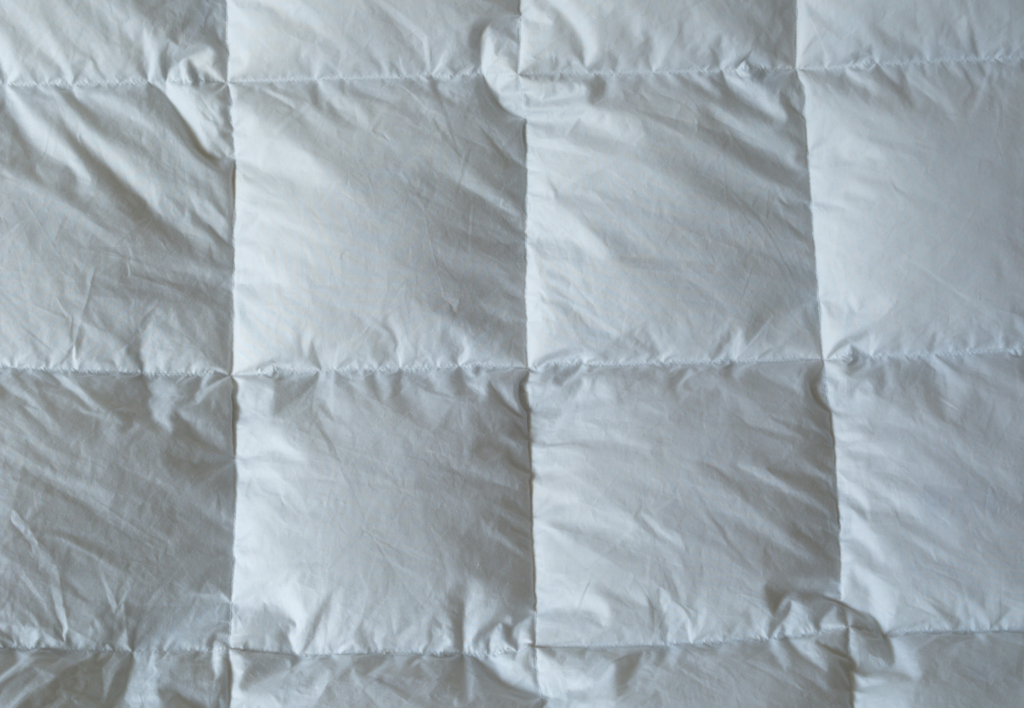
Down Alternative Comforters
Down alternative comforters are designed to mimic the feel of real down while being made from synthetic fibers like polyester. These comforters are a popular choice for those seeking the plushness of down without its drawbacks.
Pros:
- Hypoallergenic: A significant advantage is their hypoallergenic nature, making them suitable for people with down allergies.
- Affordability: They are generally more affordable than genuine down comforters, offering a similar level of comfort at a lower price point.
- Ease of Care: Most down alternative comforters are machine washable, making them easier to care for than traditional down.
- Animal-Friendly: Being synthetic, they are a cruelty-free option for those concerned about animal welfare in down production.
Cons:
- Less Breathability: Synthetic materials may not be as breathable as natural down, potentially leading to overheating during sleep.
- Variability in Quality: The warmth and durability can vary significantly based on the quality of the synthetic fill.
- Heavier: They can be heavier than natural down comforters, which might not appeal to those who prefer lightweight bedding.
Typical Costs:
The price of down alternative comforters can range from about $30 to $200, depending on factors like the quality of the fill, the fabric of the outer shell, and the brand. They offer a budget-friendly alternative to down while still providing comfort and warmth.
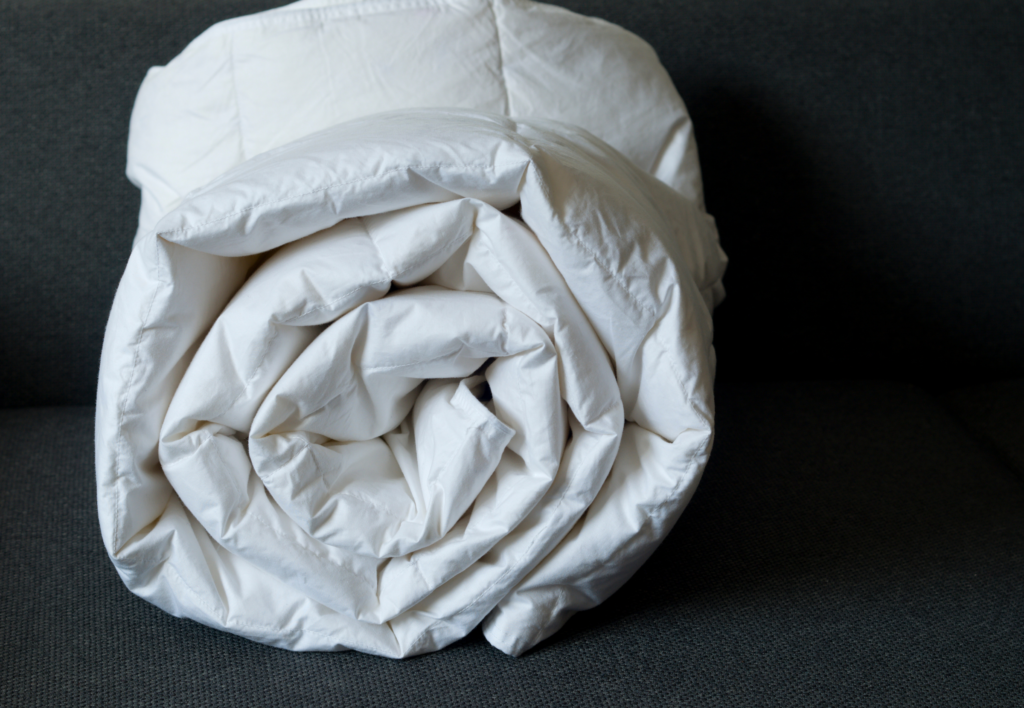
Wool Comforters
Wool comforters are natural bedding options known for their durability and excellent temperature regulation. Filled with wool fibers, they are a great choice for those looking for a comforter that adapts to different climates and seasons.
Pros:
- Natural Insulation: Wool’s natural insulating properties keep you warm in winter and cool in summer, making it ideal for year-round use.
- Moisture-Wicking: Wool can absorb moisture without feeling wet, keeping you dry and comfortable throughout the night.
- Durability: Wool comforters are long-lasting and maintain their shape and loft over time.
- Hypoallergenic: Wool is resistant to mold, dust mites, and mildew, making it a good option for allergy sufferers.
Cons:
- Weight: Wool comforters tend to be heavier than down or synthetic options, which might not be preferred by everyone.
- Care Requirements: They often require special care, such as dry cleaning or hand washing, which can be less convenient.
- Cost: Wool comforters can be more expensive than synthetic varieties, reflecting their quality and longevity.
Typical Costs: Wool comforters are generally priced in the mid-to-high range, often between $100 and $400. The cost reflects factors like the quality of the wool, the craftsmanship, and the brand.
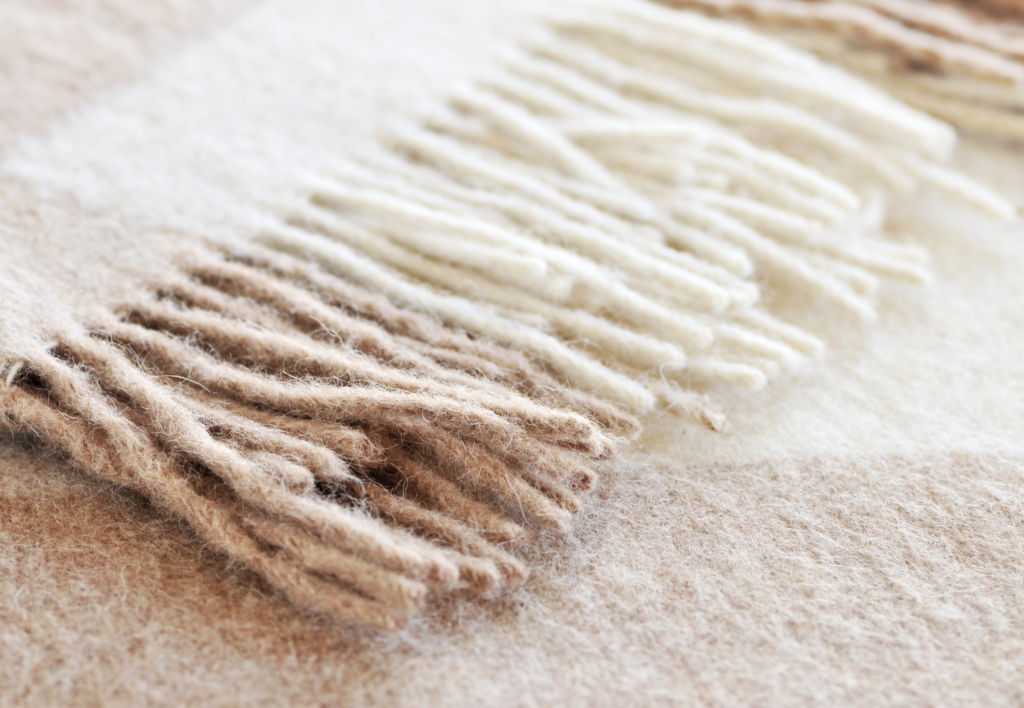
Cotton Comforters
Cotton comforters are popular for their natural fibers and breathability. They are a versatile choice, suitable for a wide range of climates and preferred by those who enjoy a more traditional feel in their bedding.
Pros:
- Breathability: Cotton’s natural breathability makes these comforters perfect for maintaining a comfortable sleeping temperature, reducing the likelihood of overheating.
- Ease of Care: Cotton comforters are generally machine washable and easy to care for, making them a practical choice for everyday use.
- Hypoallergenic: Being a natural fiber, cotton is less likely to cause allergic reactions, ideal for those with sensitive skin.
- Variety: Available in a wide range of weights, weaves, and styles, cotton comforters can fit any decor style and preference.
Cons:
- Less Insulating: While breathable, cotton may not provide as much warmth as down or wool, potentially requiring additional layers in colder climates.
- Prone to Wrinkles: Cotton can wrinkle easily, which may require more effort in terms of maintenance for a neat appearance.
- Durability: Depending on the quality, cotton comforters might not be as durable as other materials and could lose their shape or texture over time.
Typical Costs: Cotton comforters can vary in price, typically ranging from $50 to $200. The price depends on factors like the quality of the cotton, thread count, and brand. They offer a middle-ground option in terms of cost, balancing quality and affordability.
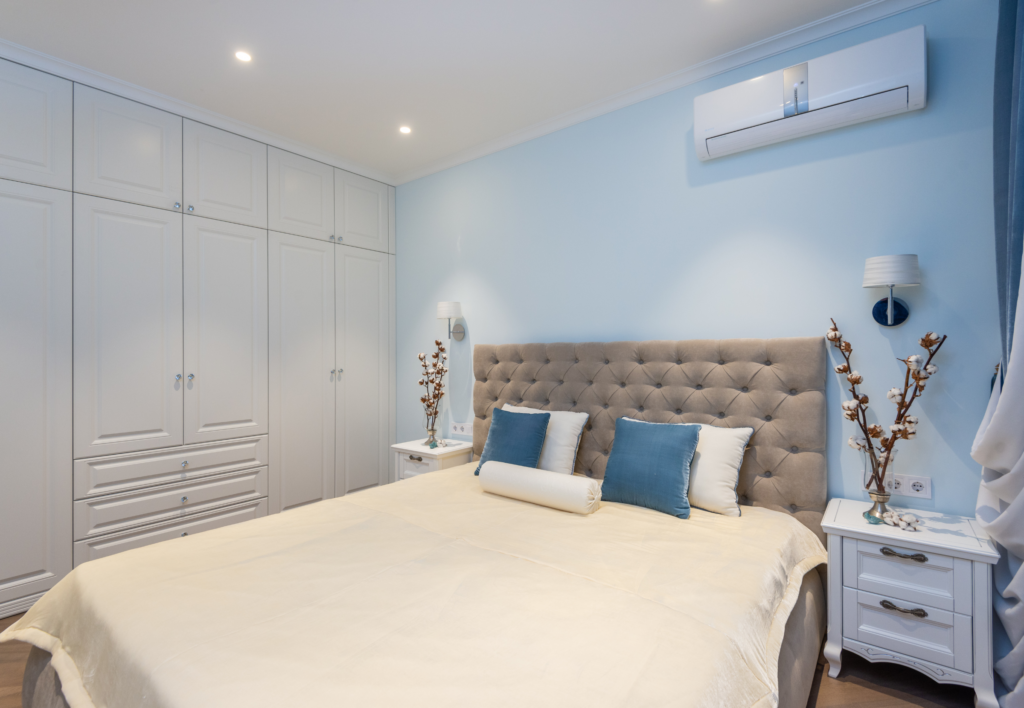
Silk Comforters
Silk comforters, known for their luxurious feel, are made from silk fibers. They stand out for their lightweight, smooth texture and excellent thermal regulation, making them a favorite for those seeking comfort in elegance.
Pros:
- Temperature Regulation: Silk naturally adjusts to body temperature, providing warmth without overheating.
- Hypoallergenic: Silk is naturally resistant to dust mites, mold, and fungi, making it an excellent choice for allergy sufferers.
- Lightweight and Comfortable: Silk comforters are exceptionally lightweight, offering a comfortable and luxurious sleep experience.
- Durability: When properly cared for, silk comforters can be quite durable, retaining their shape and sheen.
Cons:
- Cost: Silk is one of the more expensive materials for comforters, reflecting its luxurious quality.
- Care Requirements: Silk comforters often require special care, such as professional cleaning or hand washing, to maintain their texture and appearance.
- Less Warmth in Extreme Cold: While excellent for temperature regulation, silk may not provide enough warmth in very cold climates compared to down or wool.
Typical Costs: Silk comforters are generally at the higher end of the price spectrum, with prices ranging from $150 to $500 or more. The cost is influenced by the quality of silk, craftsmanship, and brand reputation.
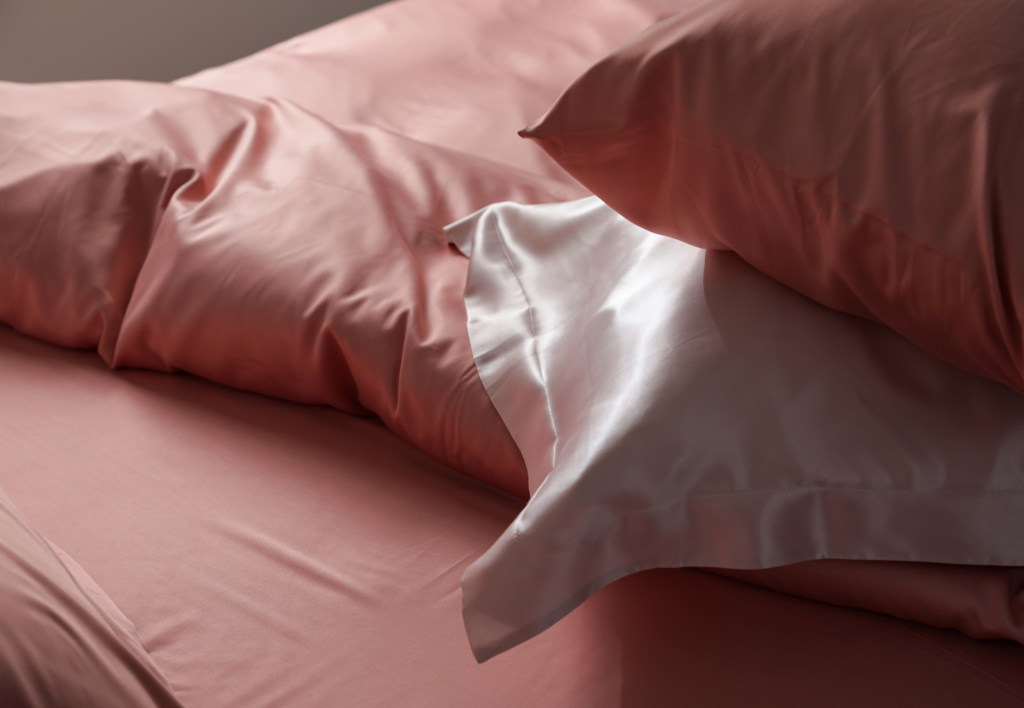
Synthetic Comforters
Synthetic comforters are filled with man-made fibers like polyester or rayon. They are a versatile and widely available option, offering a range of benefits especially suited for those with specific needs or budgets.
Pros:
- Affordability: One of the biggest advantages of synthetic comforters is their affordability, making them accessible to a wide range of budgets.
- Hypoallergenic: Synthetic fibers are less likely to harbor allergens compared to natural fillings, making them a good choice for allergy sufferers.
- Easy Maintenance: Most synthetic comforters are machine washable and dryable, offering convenient care and upkeep.
- Variety of Weights and Warmths: Available in various weights, they can suit different climates and personal warmth preferences.
Cons:
- Breathability: Synthetic materials may not be as breathable as natural fibers, potentially leading to overheating for some sleepers.
- Environmental Impact: Synthetic fibers are not biodegradable and can have a larger environmental footprint.
- Durability: They may not last as long as higher-end natural comforters, with a tendency to lose loft and warmth over time.
Typical Costs: The price range for synthetic comforters varies widely, typically between $20 and $150. This makes them an affordable option, with the cost reflecting the quality of the fill and the brand.
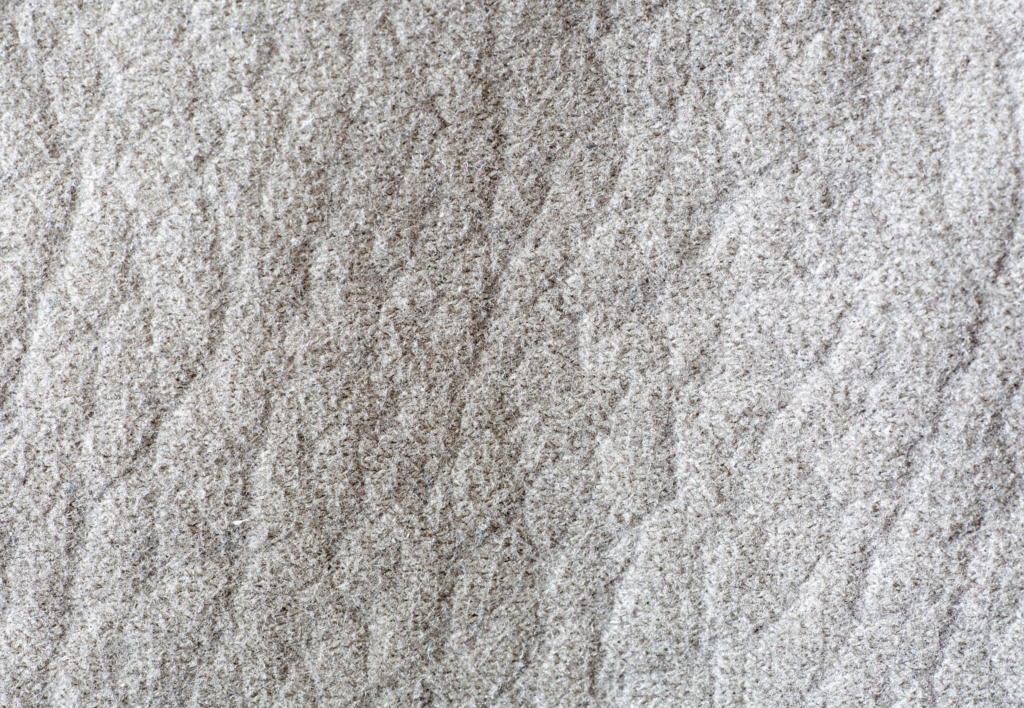
Bamboo Comforters
Bamboo comforters are made from the fibers of the bamboo plant, known for their softness and sustainability. They have gained popularity for their eco-friendly nature and unique properties that provide a comfortable sleeping experience.
Pros:
- Eco-Friendly: Bamboo is a sustainable resource, making these comforters an environmentally conscious choice.
- Softness and Comfort: Bamboo fibers are naturally soft, offering a silky, luxurious feel.
- Moisture-Wicking and Breathable: Bamboo comforters are excellent at wicking away moisture and are highly breathable, ideal for hot sleepers or humid climates.
- Hypoallergenic: Naturally hypoallergenic, bamboo comforters are suitable for those with allergies or sensitive skin.
Cons:
- Durability Concerns: While soft, bamboo fibers may not be as durable as other materials and can require delicate care.
- Variability in Quality: The quality of bamboo comforters can vary greatly depending on the manufacturing process and brand.
- Cost: Generally, bamboo comforters are more expensive than synthetic options but can be more affordable than high-end down or silk.
Typical Costs: Bamboo comforters are typically priced in the mid-range, usually between $100 and $300. The price reflects factors such as the quality of the bamboo fibers, the manufacturing process, and the brand.
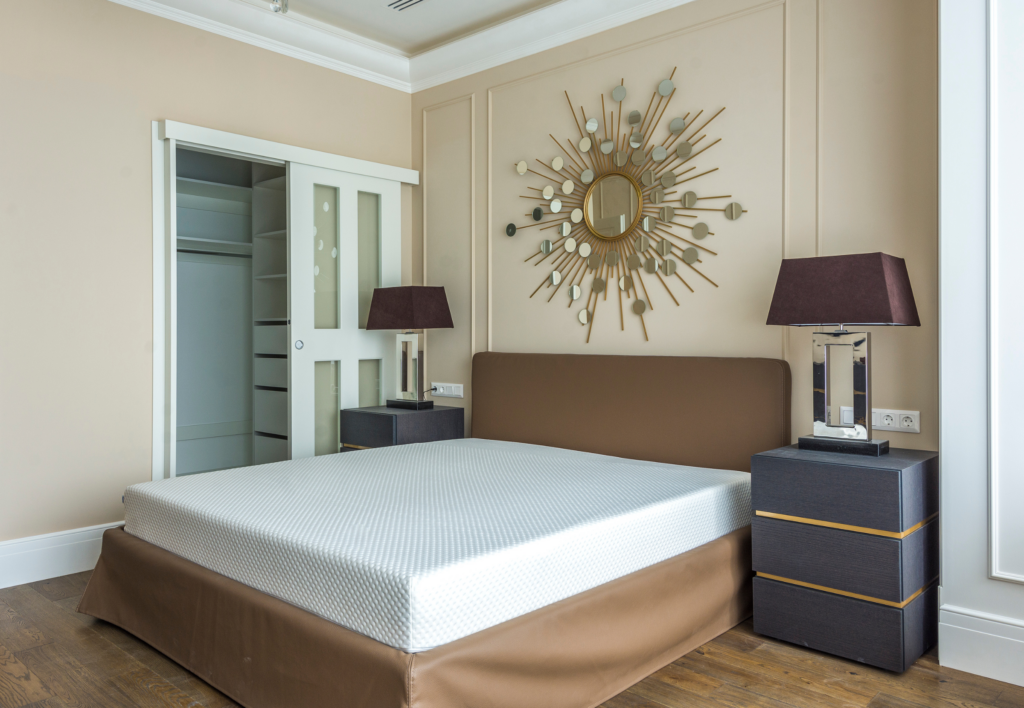
Microfiber Comforters
Microfiber comforters are made from finely woven synthetic fibers, typically polyester. Known for their softness and durability, these comforters are a popular choice for those seeking a practical and budget-friendly bedding option.
Pros:
- Softness: Microfiber is known for its soft, plush feel, providing a comfortable sleeping experience.
- Durability: These comforters are generally quite durable, resistant to wrinkles, and maintain their color and shape over time.
- Easy Maintenance: Microfiber comforters are machine washable and dry quickly, making them easy to care for.
- Affordability: They are among the most budget-friendly options, offering good quality at a lower price point.
Cons:
- Breathability: Microfiber may not be as breathable as natural fibers, which can be a concern for those who sleep hot.
- Environmental Impact: Being a synthetic material, microfiber is not biodegradable, raising environmental concerns.
- Static Electricity: Microfiber can generate static electricity, which might be a minor annoyance for some users.
Typical Costs: Microfiber comforters are very affordable, often ranging from $20 to $100. This price range makes them an attractive option for those looking for cost-effective bedding solutions without compromising on comfort.
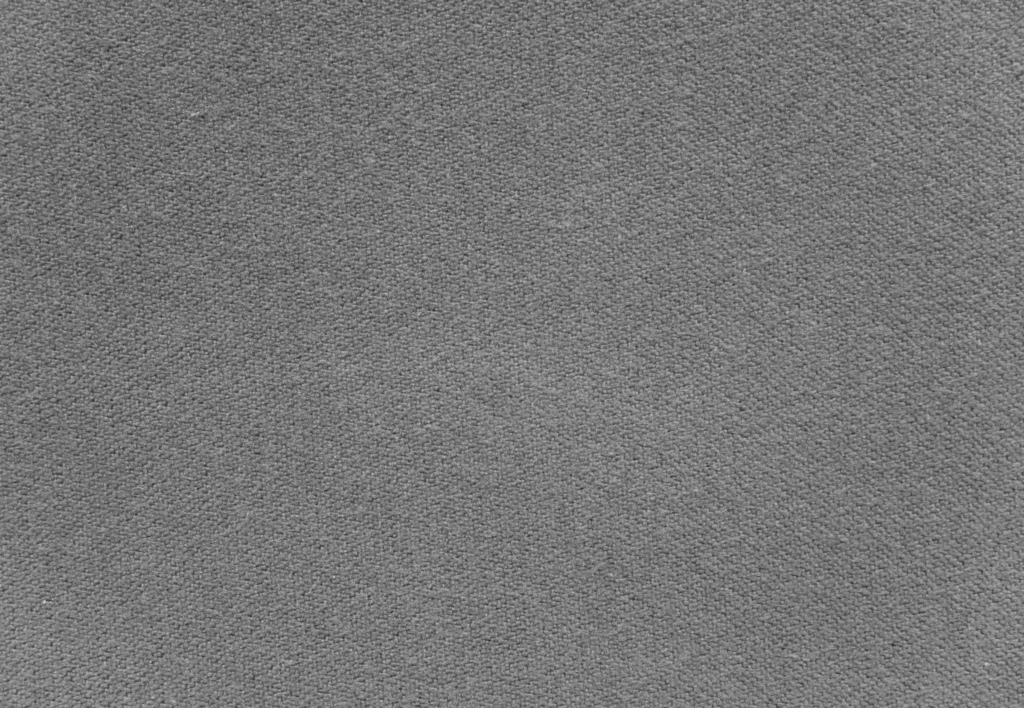
Conclusion
Choosing the right type of comforter is a key decision in ensuring comfortable, restful sleep and creating an inviting bedroom environment. Whether you prioritize eco-friendliness, hypoallergenic properties, budget, or specific climate needs, there’s a comforter type that perfectly aligns with your preferences.
To recap, we explored the nuances of Down, Down Alternative, Wool, Cotton, Silk, Synthetic, Bamboo, and Microfiber comforters. Each offers unique benefits, from the luxurious warmth of down to the sustainable comfort of bamboo and the affordability of synthetic options. Consider factors like your sleeping habits, allergies, care preferences, and environmental concerns when making your choice.
Remember, investing in the right comforter can transform your sleep experience and enhance the overall ambiance of your bedroom. We encourage you to explore these options further, keeping in mind the insights from this guide. May you find the perfect comforter that not only brings you comfort and warmth but also complements your personal style and home décor.
Sweet dreams and happy comforter hunting!
Let Us Know How We’re Doing!
Did this expertly prepared resource answer your question?
Do you have another question about home maintenance, home improvement projects, home appliance repair, or something else?
Get more information, send in questions and keep the discussion going by contacting the I’ll Just Fix It Myself company customer service team at at 1-800-928-1490 or Email us at [email protected]
